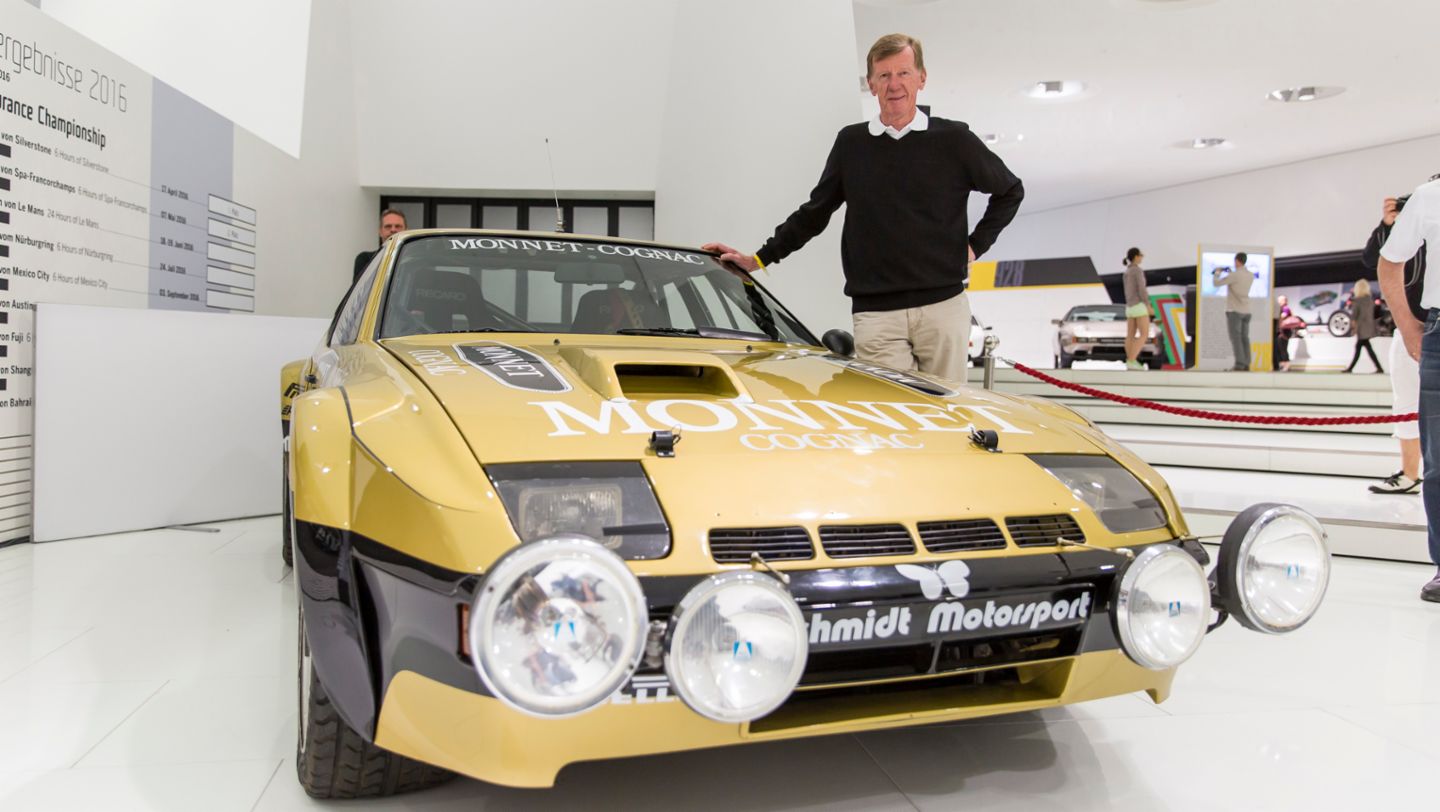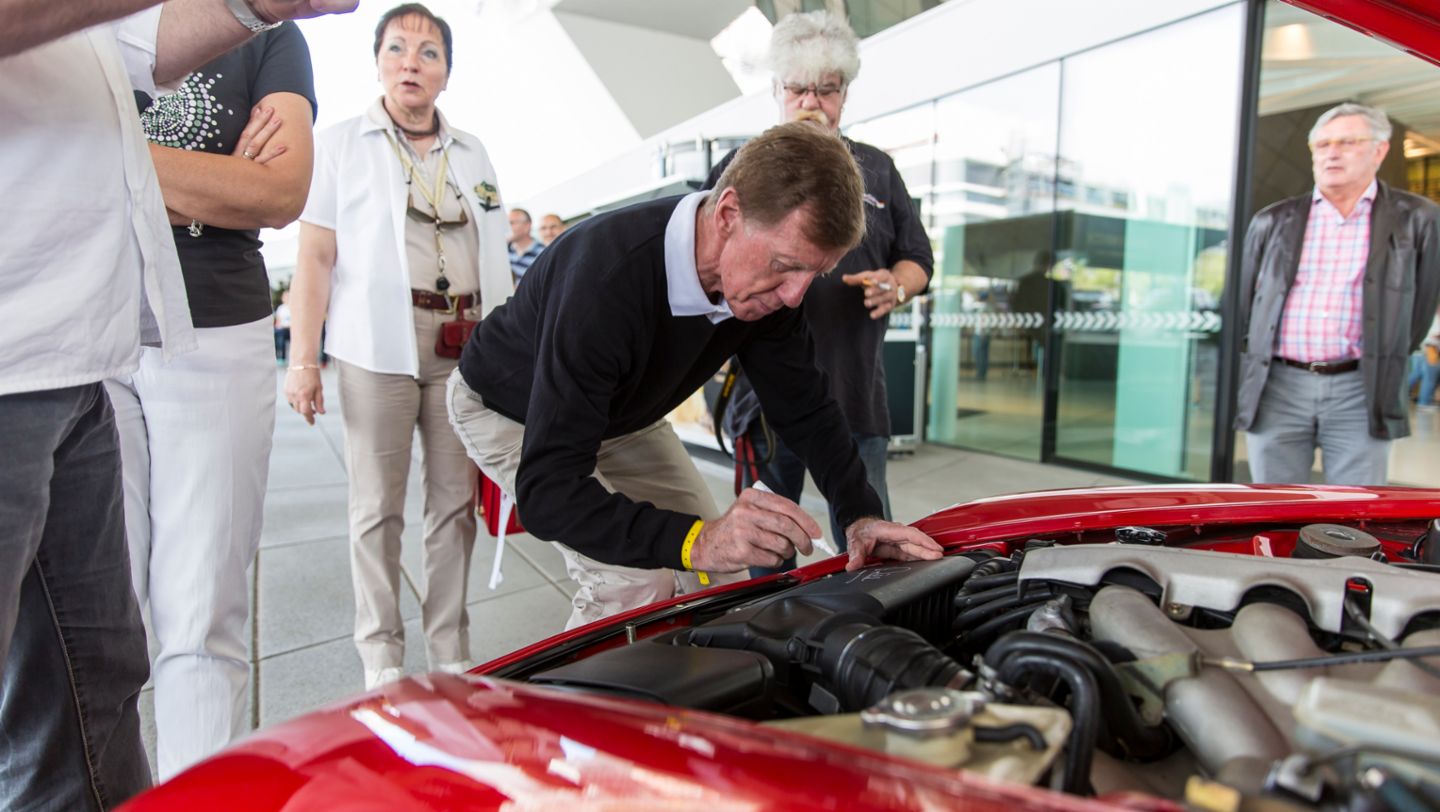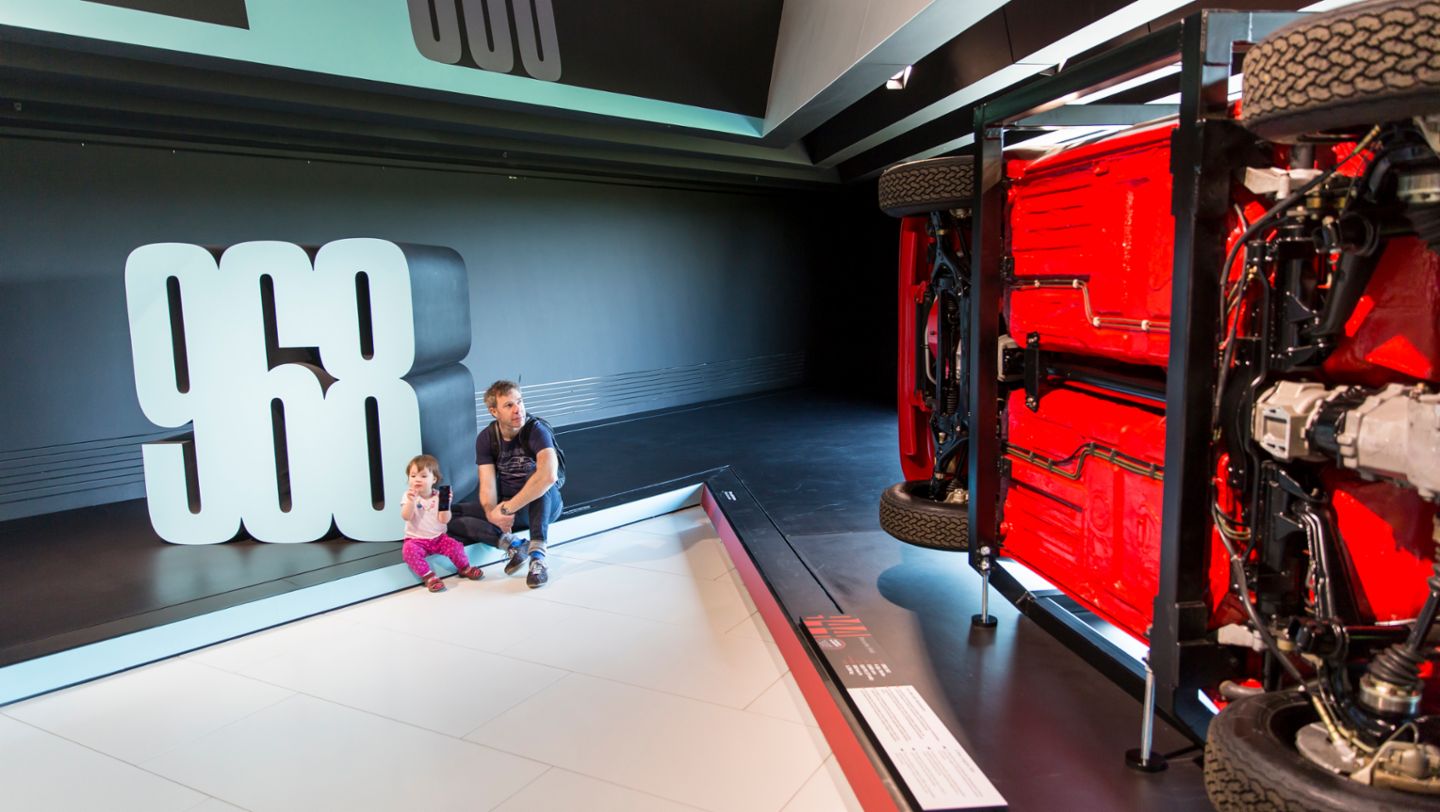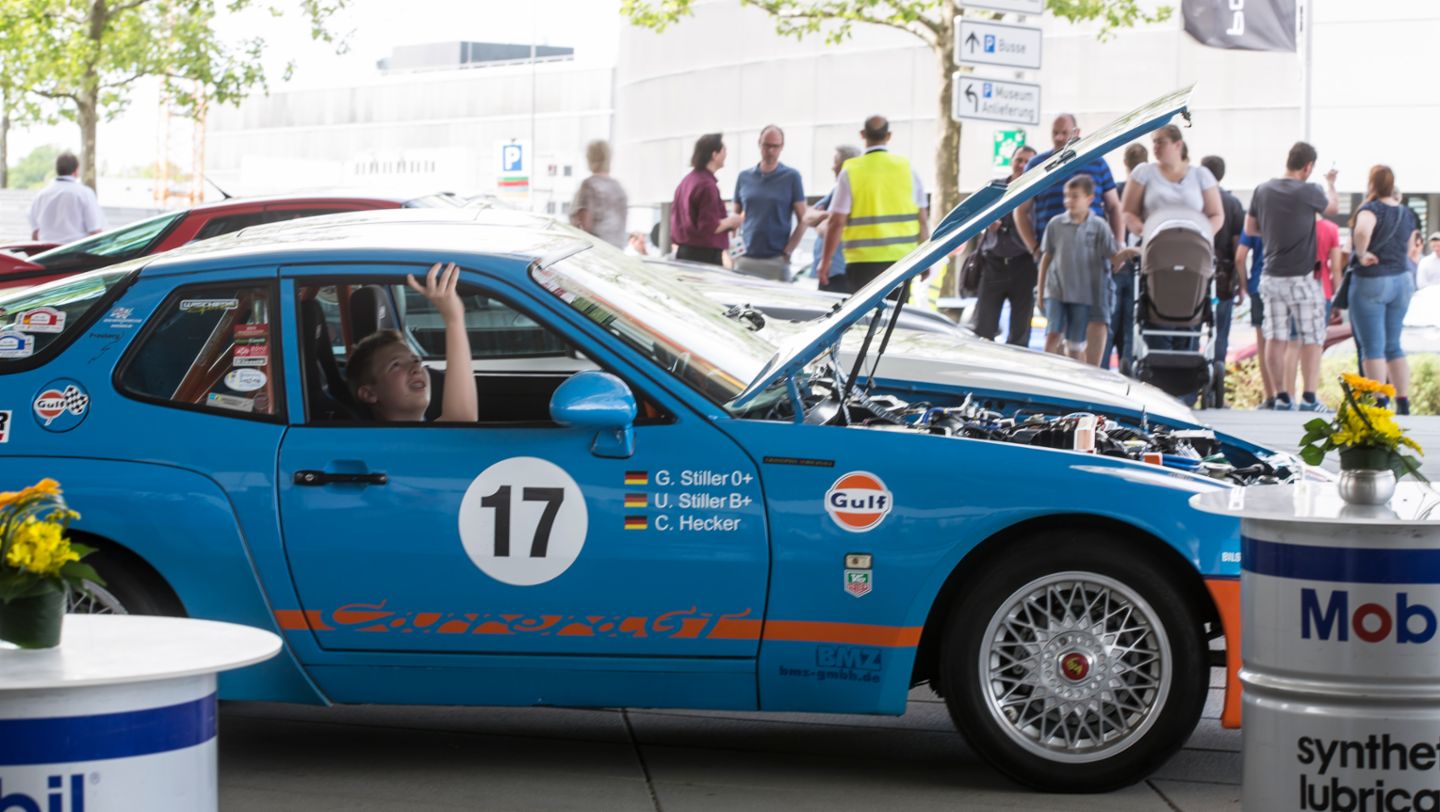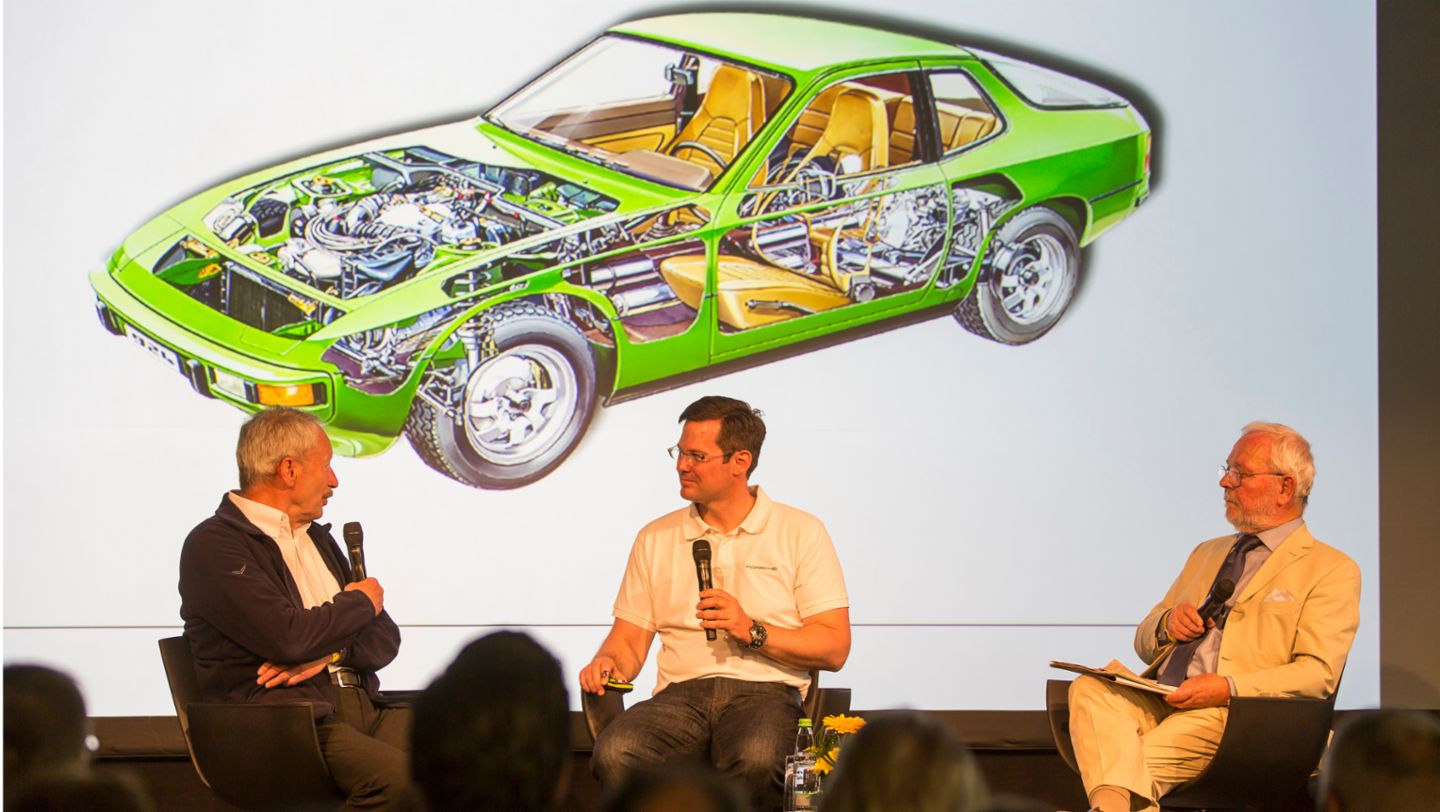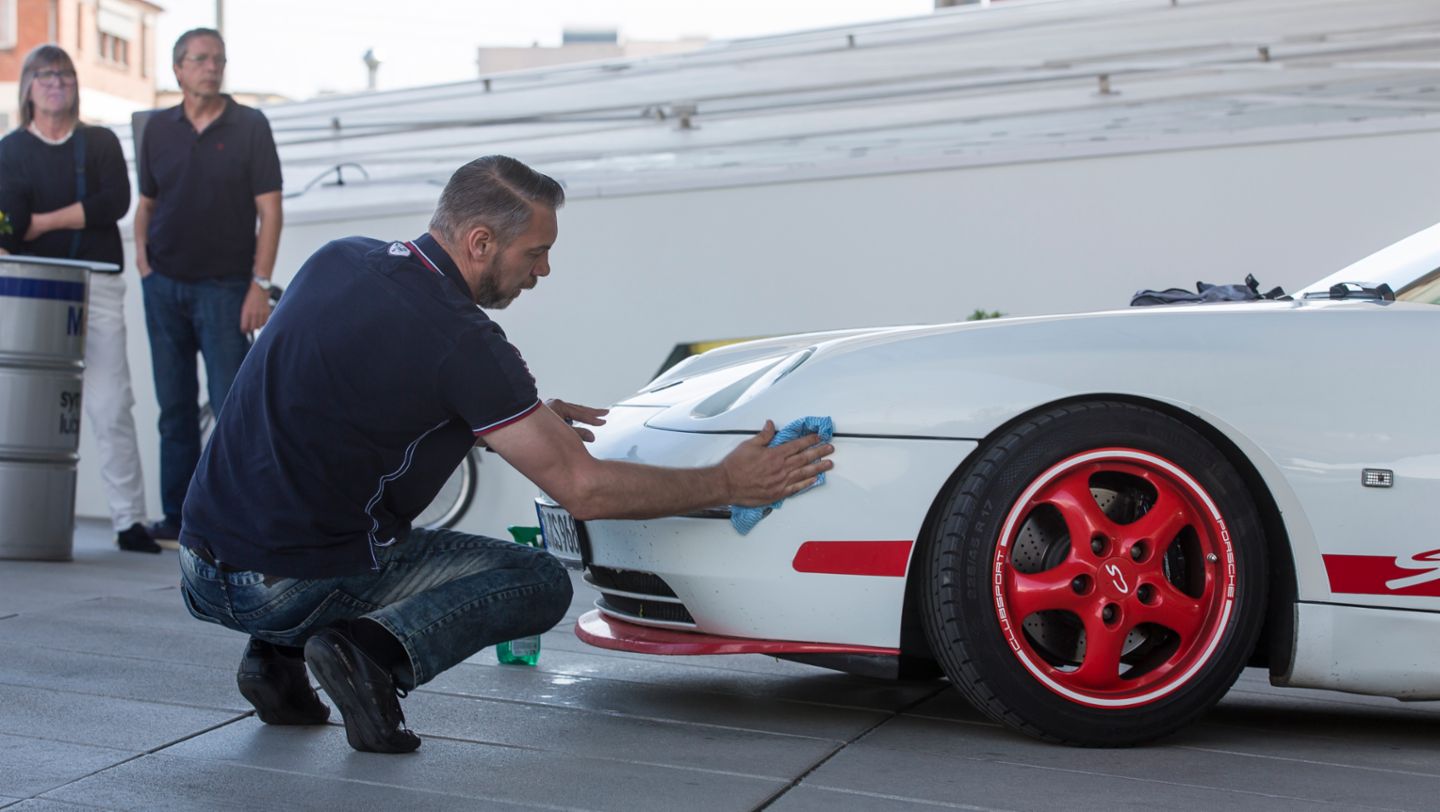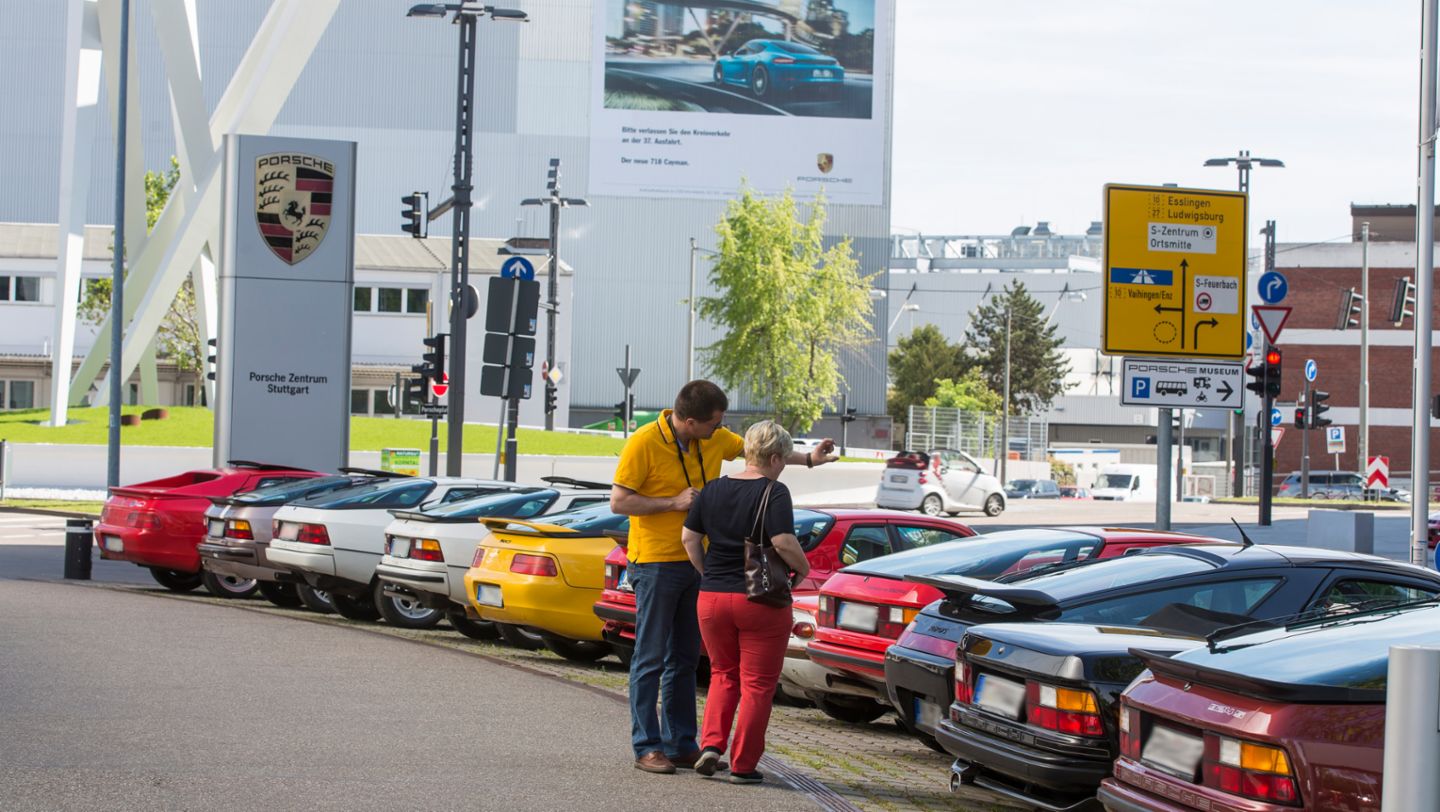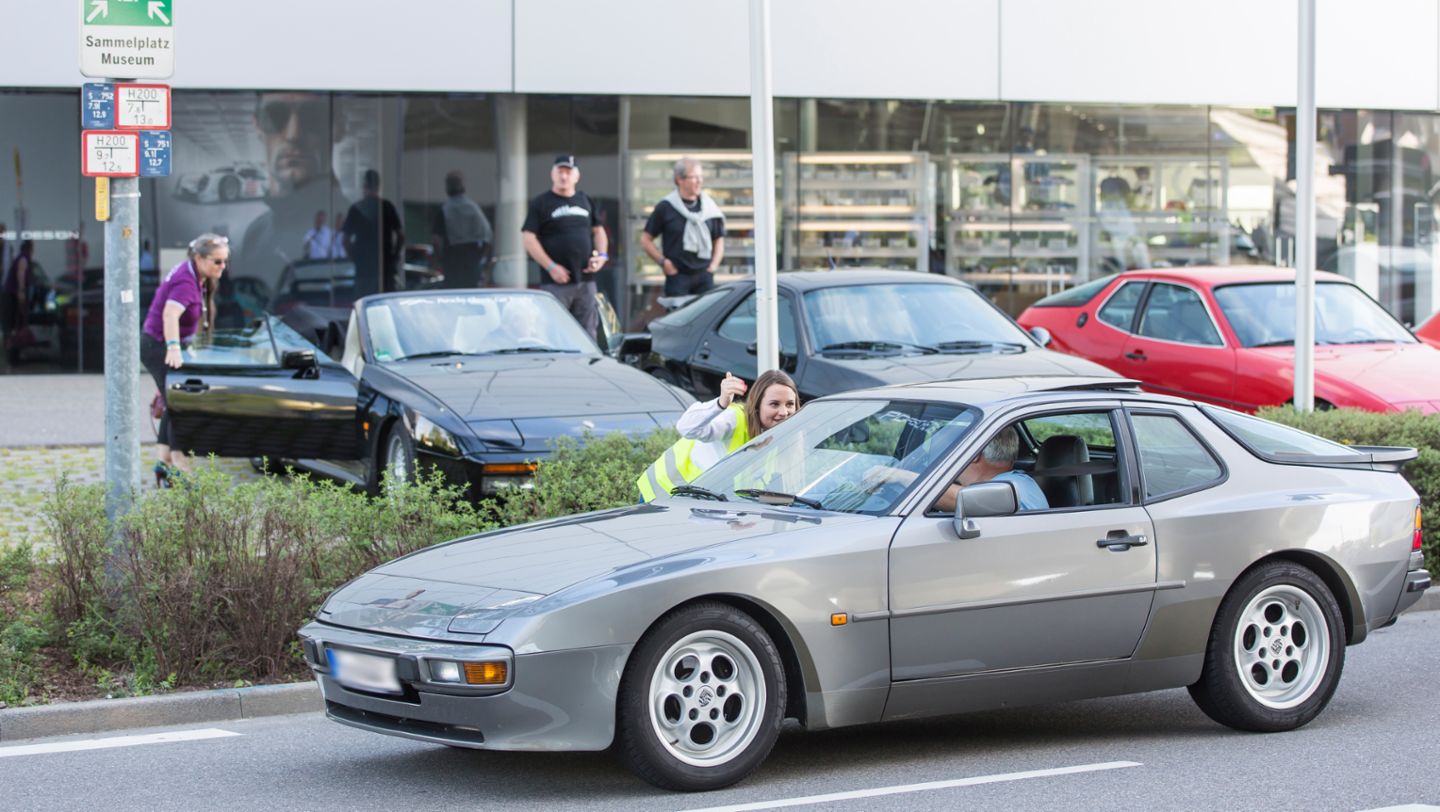Visitors to the Porsche Museum on Saturday witnessed an impressive sight: more than 90 private transaxle vehicles from the 924, 928, 944 and 968 model lines were on show on the forecourt and in front of the Porsche dealership. Built between 1976 and 1995, the sports cars marked a move by Porsche away from the established principles of the 911. The engineers in Weissach had ventured a fresh start with the water-cooled front-mounted engines and transaxle transmissions on the rear axle.
However, the special agenda on “Transaxle Day” did not focus solely on the sports cars themselves, highlights of the day came in the form of the "Transaxle Talks", with three experts in the museum workshop. Among the topics discussed was that of “Series and Development” by the head of publicity at the time Georg Ledert and chassis developer Hans Clausecker. The two racing engineers Norbert Singer and Roland Kussmaul reminisced on the success of the transaxle in motorsport. Specialists from Porsche Classic provided some insight into the “Engineering and Parts” of the model series. During discussions, the experts answered questions posed by visitors.
Legend from the history of Porsche
Another pioneer of the transaxle models was present in Zuffenhausen in the person of Walter Röhrl. The two-time rally world champion signed autographs for visitors. Together with Jürgen Barth, he achieved seventh position overall at the 24 Hours of Le Mans in the 924 GTP.
On Sunday, the Porsche Museum was offering visitors a guided tour free of charge through the special exhibition “The Transaxle era. From the 924 to the 928.”
Info
In keeping with the motto “40 years of thinking outside the box: front engine, rear transmission”, the Porsche Museum is paying tribute to the 40th anniversary of the transaxle model series with a special exhibition. Up until October 16, visitors will be able to examine 23 vehicles from this special era of Porsche history. More than half of the exhibits are on show for the first time in Zuffenhausen. The Porsche Museum is open from 9:00 am to 6:00 pm, Monday to Sunday.

